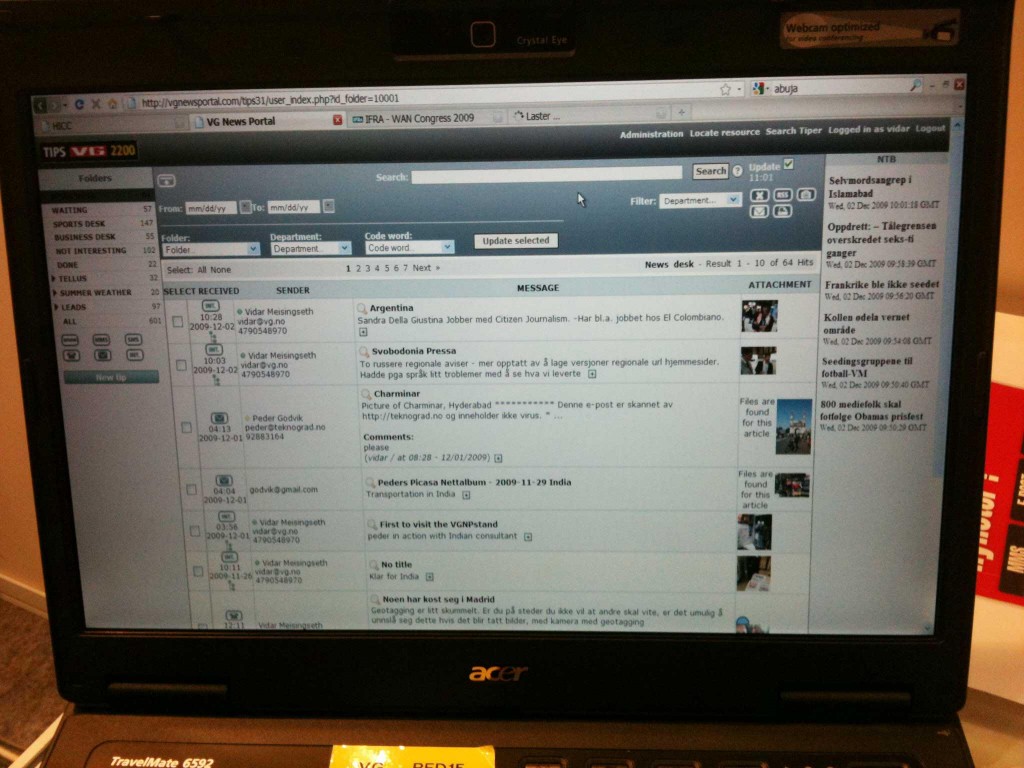Last week’s regional journalism panel at City University – in which I took part – brought out some telling detail: just how many students would be prepared to work for online start-ups (18 out of 70) and the high proportion of income that comes from regional newspaper advertising (73 per cent of the Northern Echo’s revenue comes from advertising, six per cent of that from online). With new local projects arriving on the news scene each day, there are plenty more events at which to discuss and examine the future of regional news:
- Tonight (Monday 7 December) is probably a bit short notice for the UK Future of News group’s inaugural meeting (Waterloo, 7pm) but keep track of the next date at this link. The group is for anyone interested in the future of journalism: “What it isn’t, is an arena to repeatedly lament the death of print, or the end of quality journalism, or to go around saying ‘paywalls must be the answer, journalists have got to eat,'”says its founder Adam Westbrook.”What it is, is a place where people can think positively, about tangible new ideas to determine the future of journalism. I hope someone will pitch a few ideas which we can all thrash out and stew over.”
- Tomorrow (Tuesday 8 December) the House of Commons Culture, Media and Sport committee will again be examining the future of local and regional media. Witnesses include: Michael Grade CBE, executive chairman; Michael Jermey, director of news, current affairs and sport, ITV plc; Siôn Simon MP, parliamentary under-secretary of state; and Keith Smith, deputy director of media, department for culture, media and sport. It starts at 11.30 in Committee Room 8, Palace of Westminster or online from this link.
- There’s a good line-up at the AOP microlocal conference on Wednesday 9 December and with Birmingham City University’s Paul Bradshaw, Guardian Local’s Sarah Hartley and Trinity Mirror multimedia head David Higgerson involved there’s likely to be a bit of Twittering on the day: follow #aopforum. Other speakers include Roger Green, managing director of digital media, Newsquest; Lori Cunningham, digital strategy director, Johnston Press; and James Thornett, executive product manager, BBC Local & Location Services. We’re told some tickets are still available.
- Journalism.co.uk’s own news:rewired event on 14 January 2010, where independent regional sites will meet traditional brands pursuing new partnerships and community sourcing projects. We’ll be covering social media, data-crunching, citizen collaboration and entrepreneurship, with some of the UK’s leading regional and national online journalists.
Update: Just realised all these regional events are London-based. Any outside the capital to throw in the mix?



